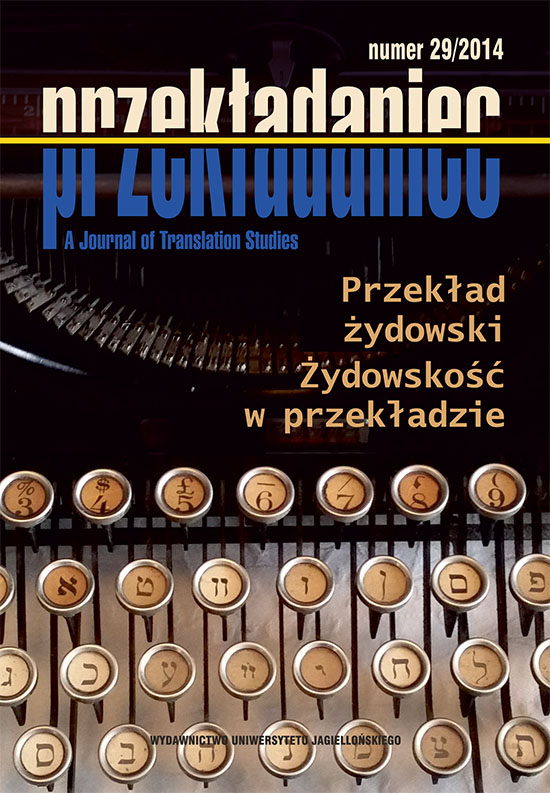Wieża Babel. Świadectwa Holokaustu a etyka przekładu
The Tower of Babel: Holocaust Testimonies and the Ethics of Translation
Author(s): Dorota GłowackaSubject(s): Language and Literature Studies, Jewish studies, Jewish Thought and Philosophy, History of Antisemitism
Published by: Wydawnictwo Uniwersytetu Jagiellońskiego
Keywords: translation; Holocaust testimony; ethics
Summary/Abstract: This article considers Holocaust testimonies and the question of translation, understood here as both exchanges between languages within a text and renditions of a text into another language. According to Imre Kertész, Holocaust has no language that could express its meaning, and no national language has been able to coin words and expressions capable of conveying its catastrophic dimension. Since Holocaust survivors must express themselves in one of the national languages, Holocaust testimony is always a form of translation, even in the case of writers who wrote their memoirs in their native tongues (such as Kertész, Primo Levi, Jean Améry, Paul Celan, Ida Fink, and Hanna Krall, whose work is discussed here). The choice of language in which survivors’ memoirs (as well as other literary forms) were written had a profound impact on their authors’ sense of self-identity, their ability to heal, and the way they remembered the past. The largest number of memoirs appeared in English, the survivors’ second tongue, whose neutrality enabled them to overcome associations with the language in which they experienced traumatic events. Others, such as Elie Wiesel and Isabella Leitner, translated their initial accounts written in their native tongues (Yiddish and Hungarian, respectively) into smoothed-out versions in the languages of their adopted country (France and the United States).
Journal: Przekładaniec.
- Issue Year: 2014
- Issue No: 29
- Page Range: 229-255
- Page Count: 27
- Language: Polish

